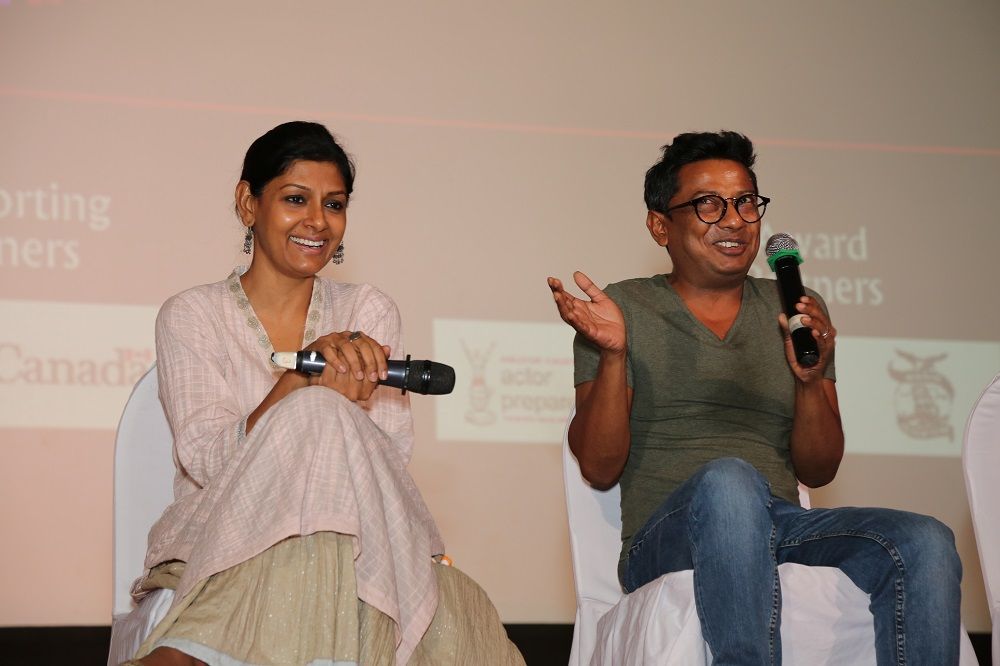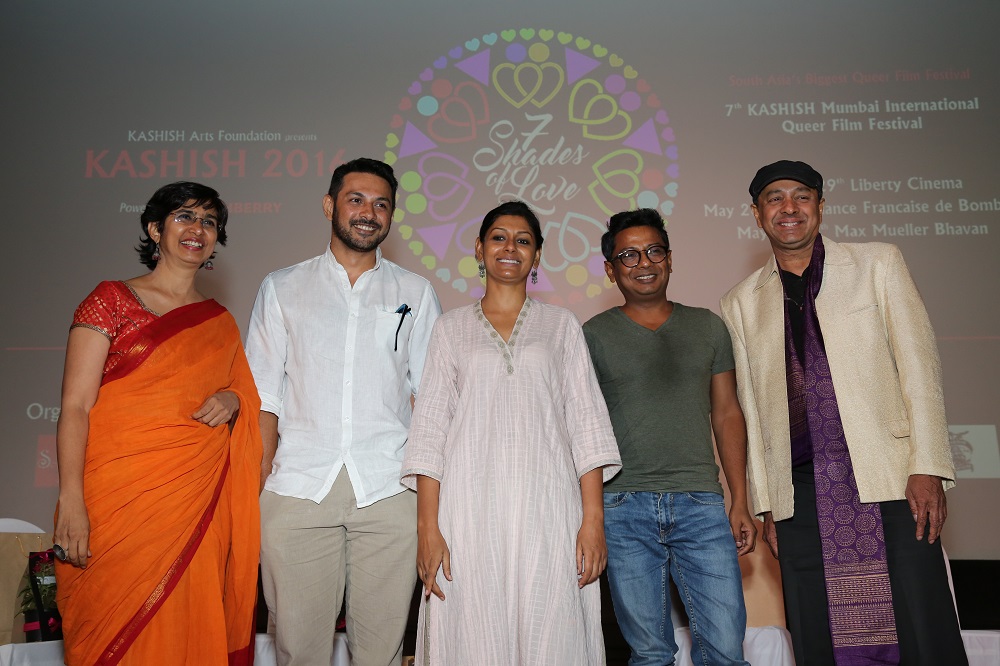‘CENSORSHIP IS SO ARBITRARY AND RANDOM’ – PANEL DISCUSSION

Indian cinema in 2013 celebrated a centenary of films, but issues of censorship & barriers in freedom of expression continue to dog the industry. The problems become more immediate for films that challenge social norms, question traditional practices or rock the status quo. While on one hand, the censor board is still mired in antiquated rules and places hurdles on films that deal with contentious issues, on the other hand distribution & marketing machinery questions the judiciousness in investing in such films. Do these hamper artistic freedom and where does one draw the line for artistic license? How do filmmakers, actors, producers and distributors navigate this complex terrain to ensure that films on challenging social issue are enabled to be made within the mainstream system?
The third day of the 7th Kashish International Mumbai Queer Film Festival saw filmmakers and actors from diverse backgrounds coming together to discuss the one thing they all had in common: Cinema and Censorship. The panel discussion on May 27, 2016 at South Asia’s biggest LGBT film festival was sponsored by Whistling Woods.
“I had an great opportunity to attend the opening ceremony of KASHISH 2016 and interact with several people of the LGBT community; the energy, liveliness and positivity that surrounded the place was beyond imagination. I’m extremely happy to be on the advisory board of KASHISH and partner with such a noble initiative. At Whistling Woods International, we encourage students to produce films, which educate and enlighten the society regarding the LGBT community. Wishing success to KASHISH and looking forward to a future without discrimination in every aspect of society and beyond,” said Meghna Ghai Puri, President, Whistling Woods International.
The panelists included journalist Meenakshi Shedde as the moderator, Film editor Apoorva Asrani, filmmaker Onir, actor Nandita Das and festival organizer and filmmaker Sridhar Rangayan.
This is what the panelists had to say:

Nandita Das:
I was brought up in a very liberal home. Despite that we never openly discussed the issue of homosexuality. During the making of Fire I was very engrossed in its technicalities. I felt like the issue spoke to me from the inside. My mother even warned me that I’d be asked a lot of questions. My sensitivity and the knowledge of the issue grew much more after the film. As a straight person I sometimes feel ashamed of being a part of a society that makes the LGBTQ community go through such things. Twenty years ago if someone questioned me about my identity just because I was going for an LGBT rally, I’d get very defensive. Today, however, that is not the case.
I am completely against censorship, it’s so arbitrary and random. What’s offensive to me may not be offensive to you, it was detrimental to a lot of things. By censoring, we give a group of people the power to decide for the country. Today I, as a person, might find certain films very regressive, but I shall still fight for their existence.
Fire didn’t get single cut. Even when we sent it for a review following controversy over its content, it came back with no changes whatsoever. Despite these pleasant instances, I still feel like censorship is awful. There are different yardsticks that the censor board uses to censor a film, like whether it’s a documentary or feature film, who the actors are and so on.
Self-censorship is equally harmful; where you think a film will be censored while you are in the process of making it.
Onir:
My Brother Nikhil was an accidental film. I only made it because my previous four scripts got rejected. I didn’t feel the need to have a gay protagonist just because I am gay.
I feel very angry (when I am asked to cut scenes). I feel like as a society we are moving backwards. You have homophobia in people who are heading satellite channels, because of which movies that depict same sex relations are not aired on TV and do not reach the masses. When you’re legally empowered it’s easy to assert your decisions. When you are making a film with a homosexual angle, the law today acts as a barrier.
Sridhar Rangayan:
I am very politically correct so as an artist sometimes my aesthetics tend to take a backseat. These stories that portray LGBT lives is a form of activism. Often, as documentary filmmakers there is a much more leeway when it comes to censorship. In Breaking Free, terms like “Gandu” were used openly. It was very surprising to see that the censor board only wanted me to remove the word ‘fuck’.
Apurva Asrani:
Aligarh, for me, was very cathartic as I wanted to put out a character who lived with dignity. During Aligarh we never thought of censorship at any point. I was only writing about a character that I felt inside me. My identity is not restricted to the fact that I am a gay man. Keeping this in mind, I wrote the character of Prof Ramchandra Siras.
Aligarh was given an “Adults” certificate. I realized that for the censor board anything ‘gay related’ was a matter concerning only adults. The censor board thankfully didn’t want scene cut from the movie. Only for television we had to cut out the love making scene and mute the word ‘Gay’ and ‘Homosexual’. It was horrid.
